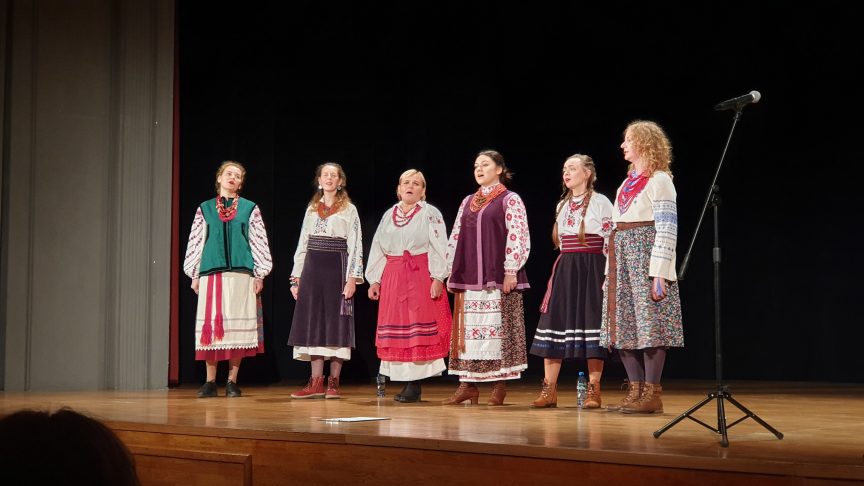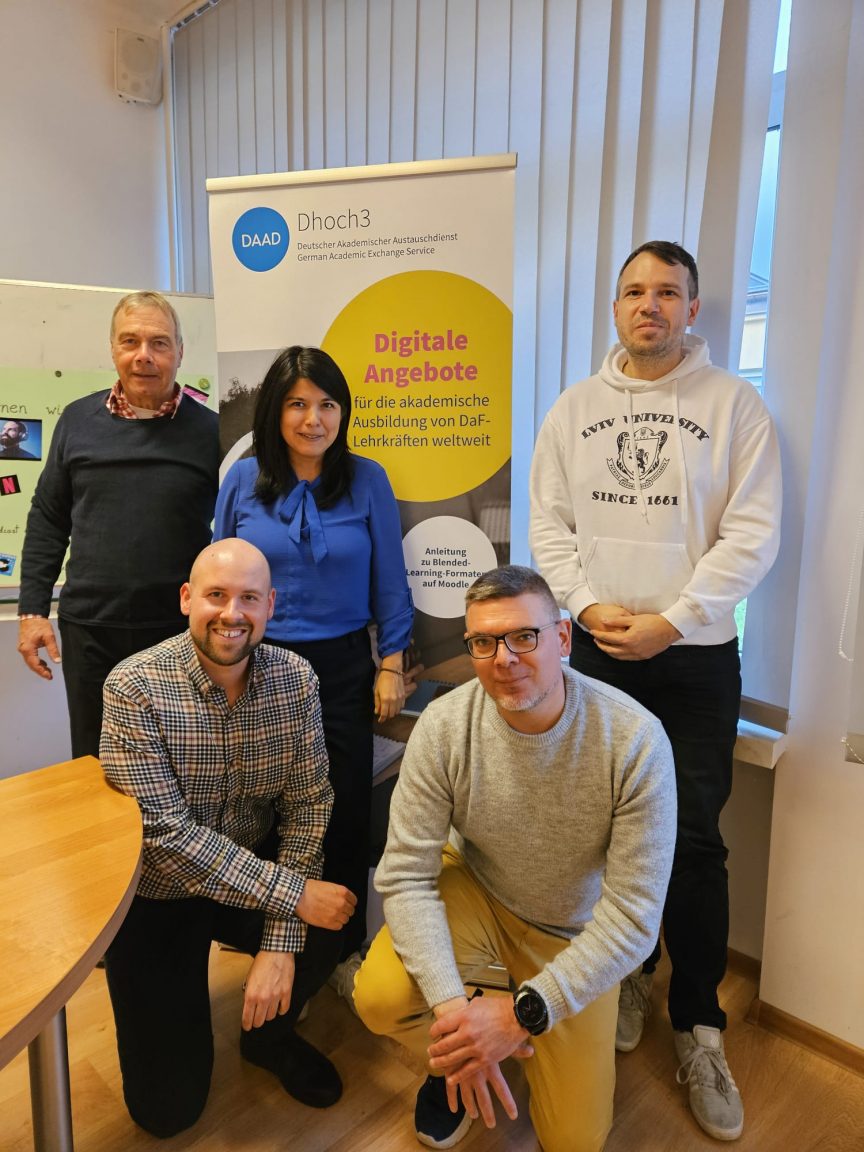Report: Dhoch3 training course "Teaching foreign languages digitally - with sense, joy and understanding"
Since the beginning of the Russian war of aggression against Ukraine in spring 2022, the DAAD’s Department of German Studies, German Language and Lectureship Programme (S14) has been increasingly promoting the Dhoch3 programme among Ukrainian teachers. Dhoch3 is a Moodle-based teaching and learning platform whose content is designed and continuously developed by professors at German universities together with international partners. Due to its online components, the programme is very well suited to supporting Ukrainian lecturers in maintaining their teaching, for example by providing specialist literature and accompanying didactic concepts.
In order to maximise the impact of Dhoch3, the DAAD, with the support of the Federal Foreign Office, is providing extensive funding for context- and target group-specific training. Following the realisation of various online formats relating to Dhoch3 for Ukraine, it has now been possible to fulfil the wish for a face-to-face event in geographical proximity to Ukraine. The face-to-face event also gives Ukrainian teachers who did not leave their home country permanently during the war the opportunity to receive further training on site and to engage in intensive dialogue with colleagues and the author teams. The participants had chosen the Dhoch3 Module 3 “Teaching and Learning with Digital (Online) Media”, which is based at the LMU Munich, for the training programme.
The event was officially opened on Friday evening at the Institute of Music at the University of Rzeszów by Prof Dr Krzysztof Nycz, Vice Dean of the College of Humanities at the University of Rzeszów. In his subsequent welcoming address, Dr Stefan Buchholz, Programme Coordinator of Dhoch3, thanked the University of Rzeszów, which acted as host, as well as the Ukrainian and Polish colleagues for their willingness to travel to Rzeszów and take time for the training. The opening was rounded off by a vocal performance by the Berehyni ensemble with folk songs sung in white.

Ensemble Berehyni© Daniel Gratkowski
A total of 25 Ukrainian and Polish lecturers took part in the all-day training course, which was organised by the LMU team of authors on Saturday. Prof Dr Jörg Roche kicked off the event with a keynote speech on the “Sense and nonsense of digital media in foreign language teaching”. Isabel Hoffmann then spoke about the didactically sensible implementation of media formats in German lessons, relevant innovations relating to extended reality (XR) and artificial intelligence (AI) as well as a low-threshold, practical introduction to these topics. In the concluding group work, the participants were able to choose from four topics and design exemplary teaching units based on the tools presented. The consistently positive response to the training emphasises the high level of interest in the topic of digital media use in DaF lessons.
The DAAD would like to thank Prof. Dr Jörg Roche and Isabel Hoffmann from the LMU Munich for organising the event. Special thanks go to our lecturers Daniel Gratkowski (University of Rzeszów) and Nicolai Teufel (Ivan Franko National University of Lviv) for their hard work in preparing and organising the event and for the professional input they provided. The lively exchange between the participants on teaching and learning with digital (online) media should be the starting point for further training on Dhoch3 for the region. We hope that the war will end soon for our Ukrainian colleagues, so that the professional and academic exchange between Poland, Ukraine and Germany that has now been initiated can be intensified on Ukrainian soil next time.

From the back left Jörg Roche, Isabel Hoffmann, Nicolai Teufel, in front Daniel Gratkowski, Stefan Buchholz© Isabel Hoffmann







